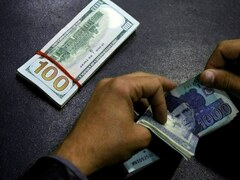BEIJING: “King Grass” pioneered by Chinese Technology is emerging as super food for animals with impactful features of cash crop and land fertility in Gwadar as well as Pakistan.
After its successful growth in the length and breadth of the free zone area of Gwadar Port, local enterprises are motivated to seek the assistance of Chinese JUNCAO technology to grow King Grass to boost their business profitability.
As per the pilot project, it was grown and used to raise livestock in a cattle farm established in Gwadar Port more than two years ago.
Throughout the time span, 80 per cent of proceeds had been utilized as food for all breeds of goats.
Not only animals turned fattened but also stayed fit without suffering from any lethal disease, Free Zone official said.
Goats, he said, love to eat King Grass with zeal due to its lush green colour, palatability, fragrance, inbuilt properties and quality, CEN reported.
This grass provides many of the nutrition requirements for cattle. It has fibre, protein and good energy content. It can replace expensive feeds in the ration and therefore reduce feeding costs while maintaining good nutrition, he mentioned.
Pakistan Farmer Association President Mian Mansha Syed said, it is a particular breed of grass discovered by Chinese scientists which is an economical and environment-friendly substitute for timber.
So far, more than 500 counties across China have participated in planting Juncao or King grass. The grass significantly lowered farming costs, and reduced annual tree clearing by 20 million cubic meters in the country, he added.
Gwadar area, by virtue of its arid climate, land degradation, saline or alkali soil and various other ecological challenges, was a litmus test for King grass.
Gwadar Port Operator COPHC initiated a project with the assistance of the Chinese Embassy and experts from Chinese Universities. In the early stage of 2020, King Grass was planted on 5 acres of land in Gwadar Port.
Results, eventually proved that it is survivable and commercially feasible. Its yield is 120,000 per acre, according to official documents.
In order to proliferate it in other part of Balochistan and Sindh, COPHC official said, seeds were donated to farmers and companies in Dasht area near Milini dam as well as Karachi. The activity generated tremendous outcome and farmer companies are in a mood to grow it further to be beneficiary of advantages of King Grass, he added.
Pak-Green NGO director Muhammad Fakhar said that Gwadar port King Grass is strong footprint of Chinese public good initiatives that aim to empower people to stamp out poverty, to earn better and boost afforestation.
In China, he said, King Grass has made milestone achievements in uprooting poverty. Thousands of people grew King Grass and used its stock for raising their animals in their cattle farms.
Owing to its low-cost growth and more than 20 years survivability, Chinese farmers income multiplied with minimum hassles as compared to other crops, he added.




















Comments
Comments are closed.